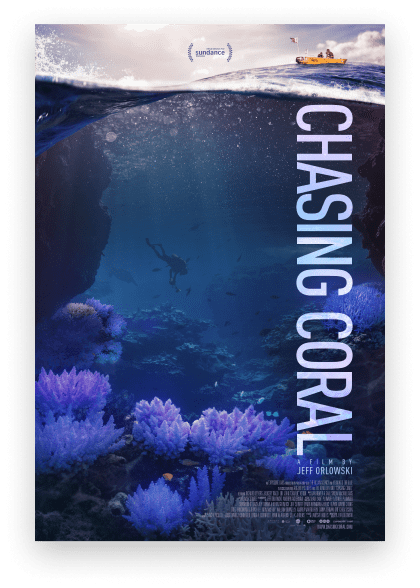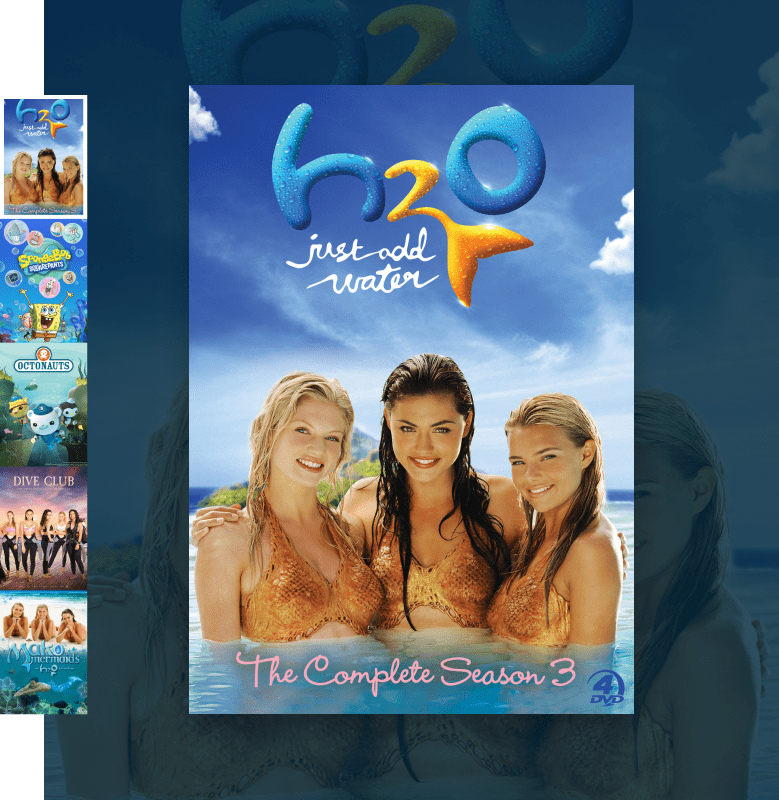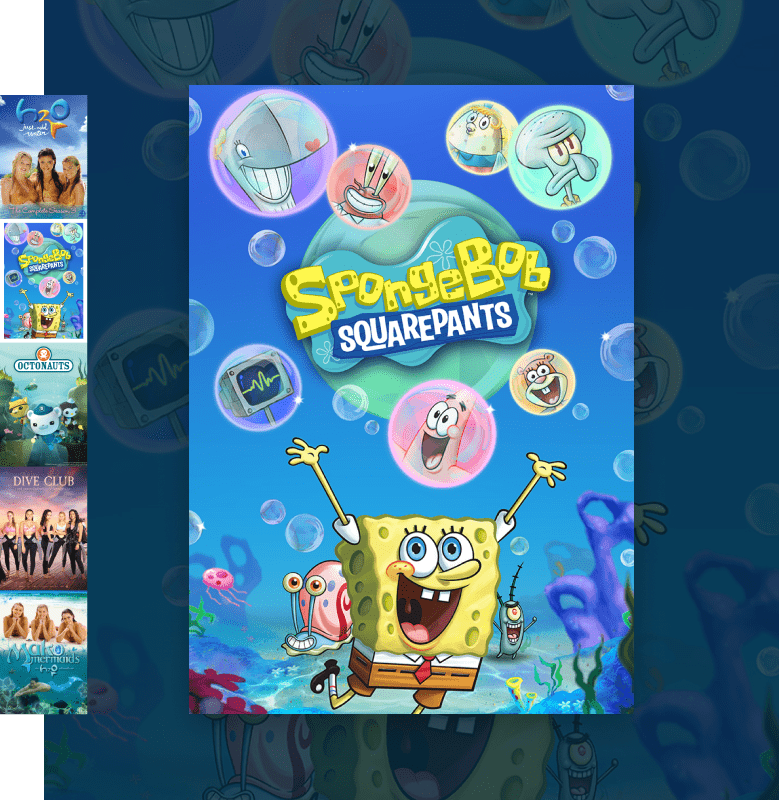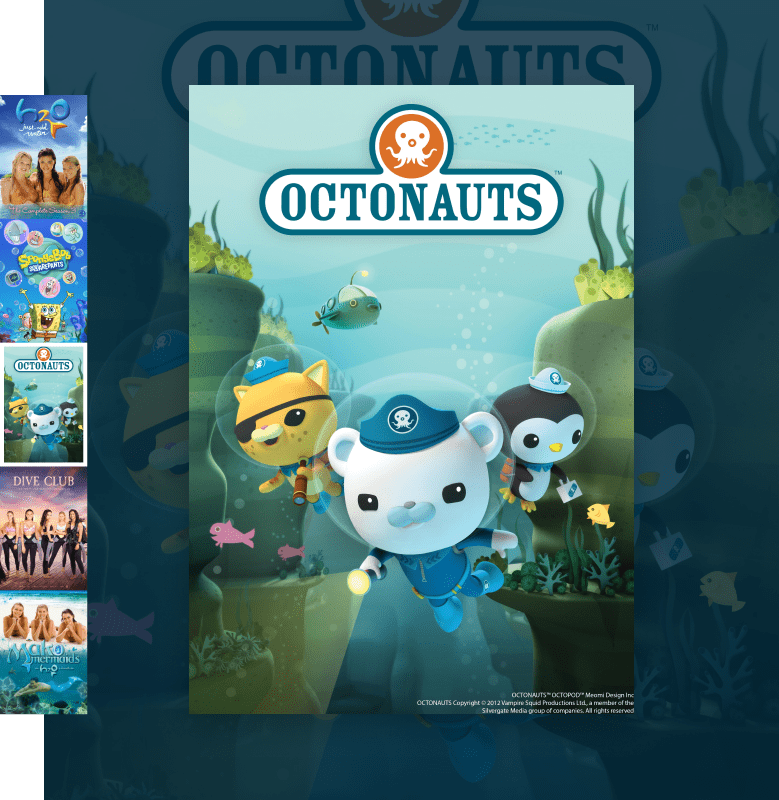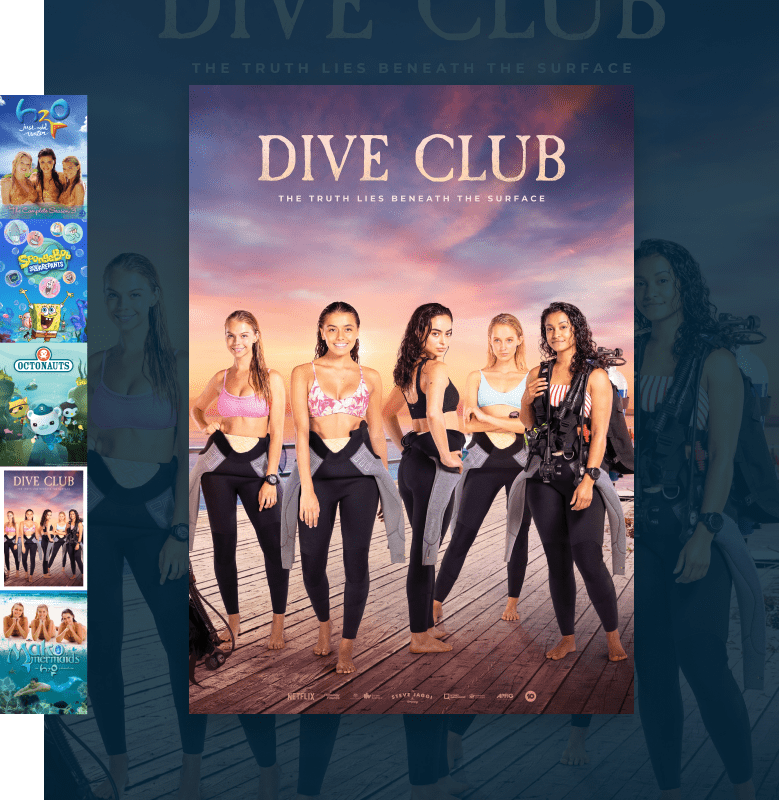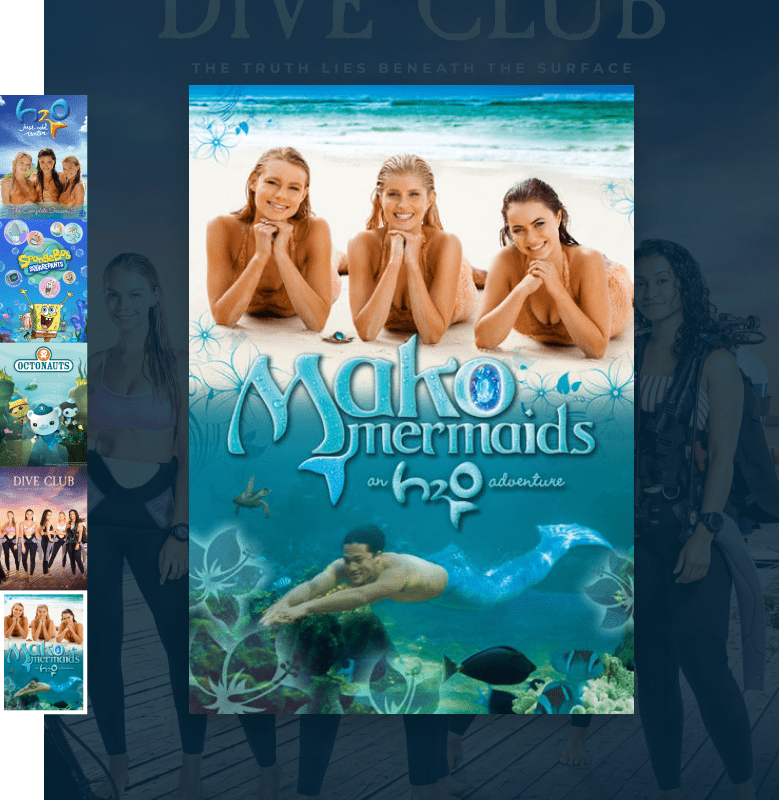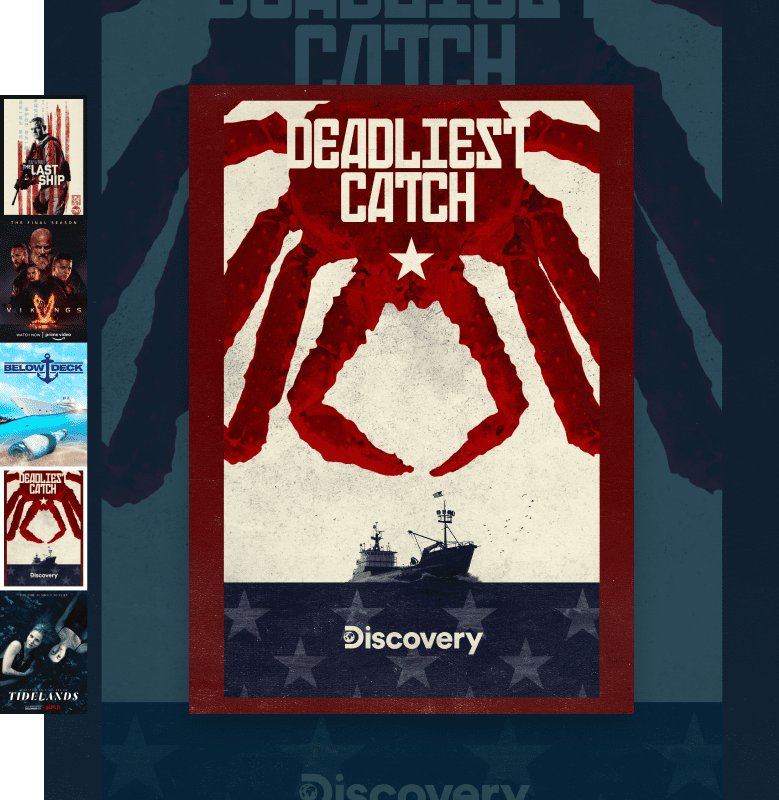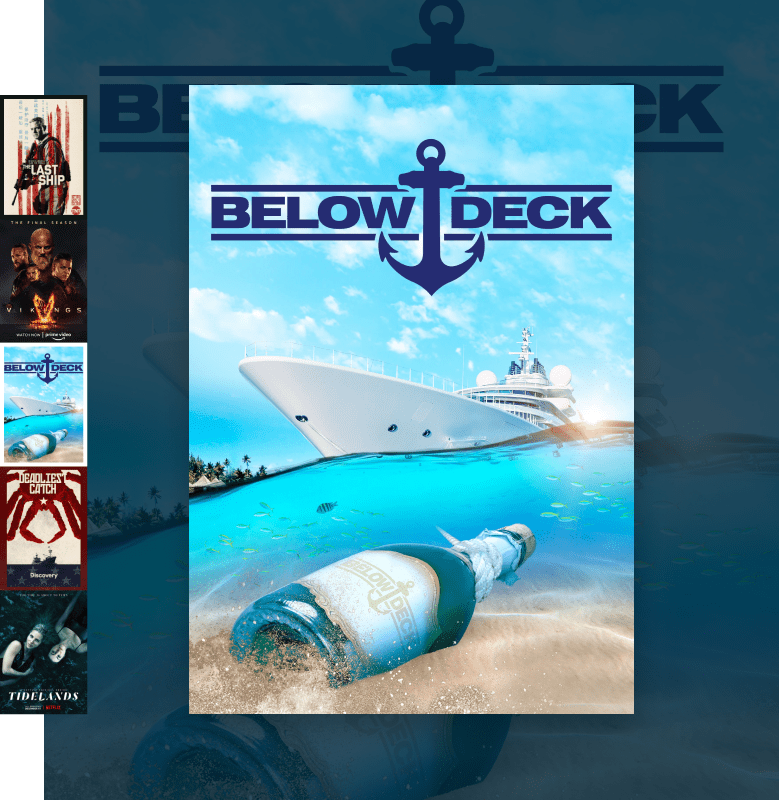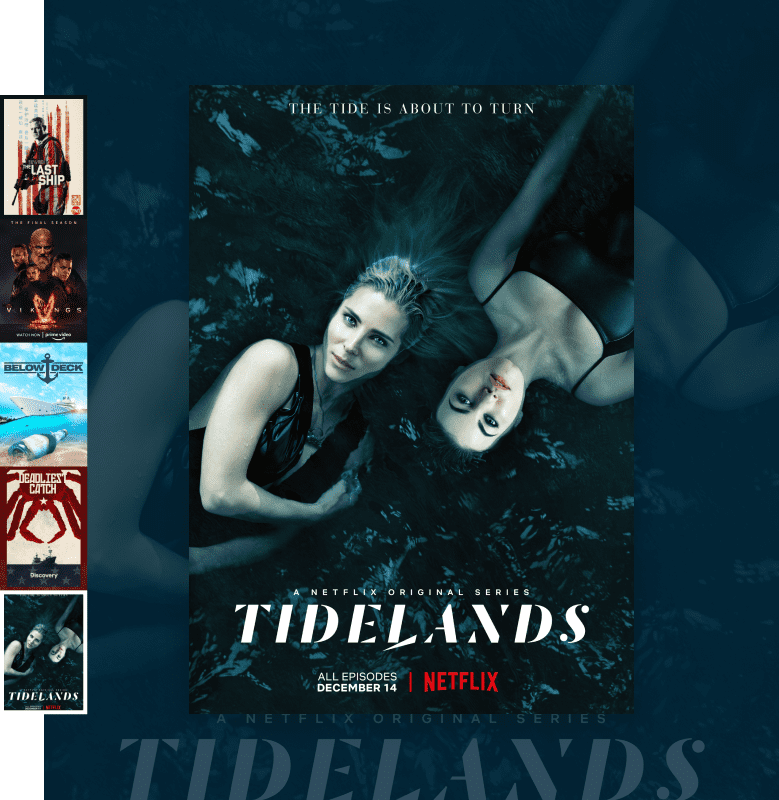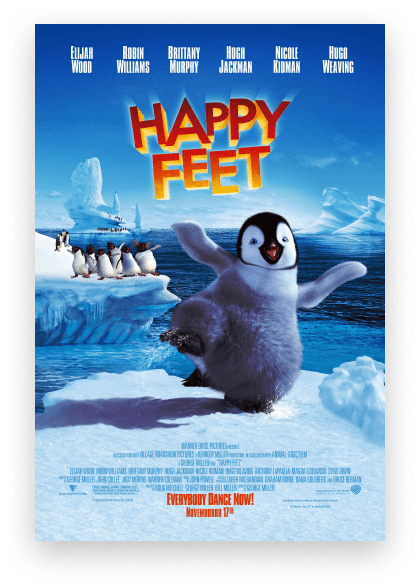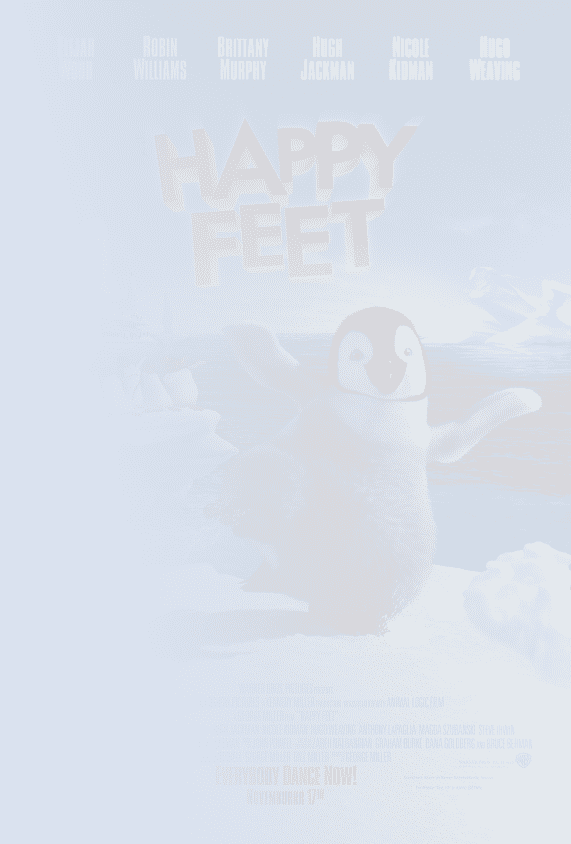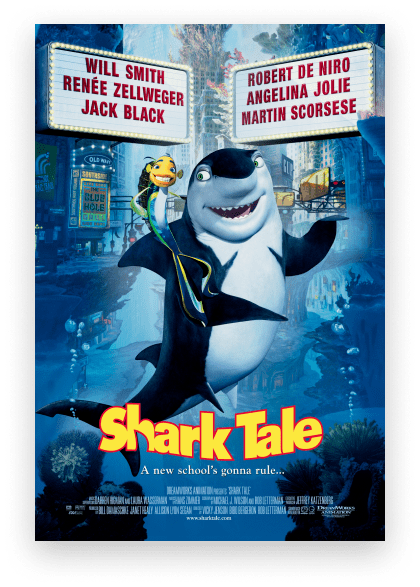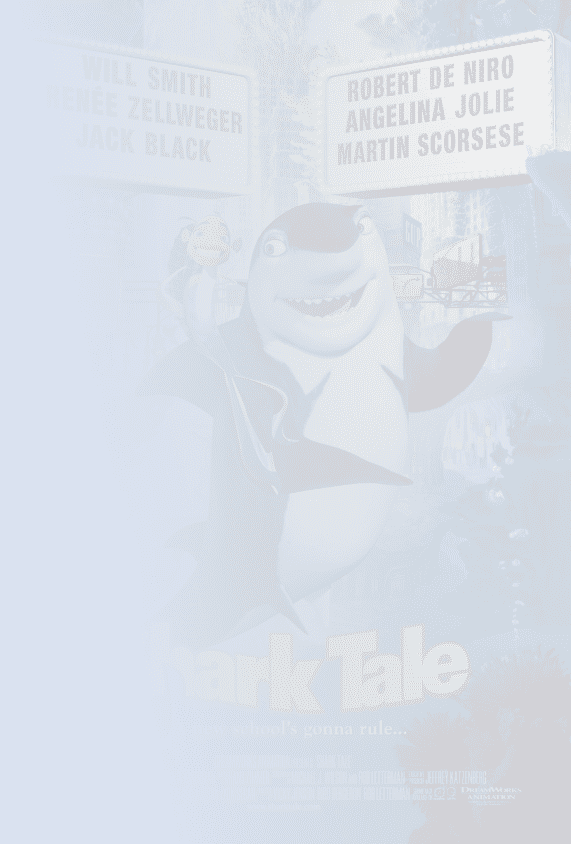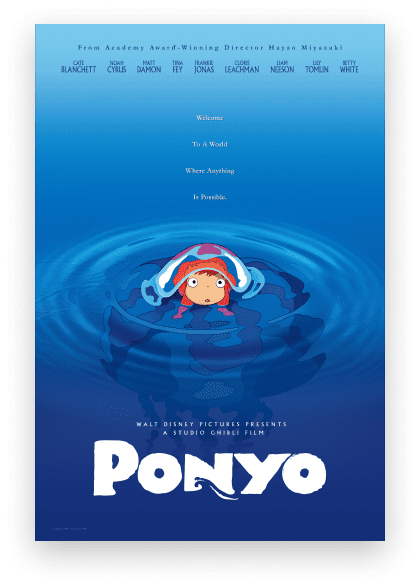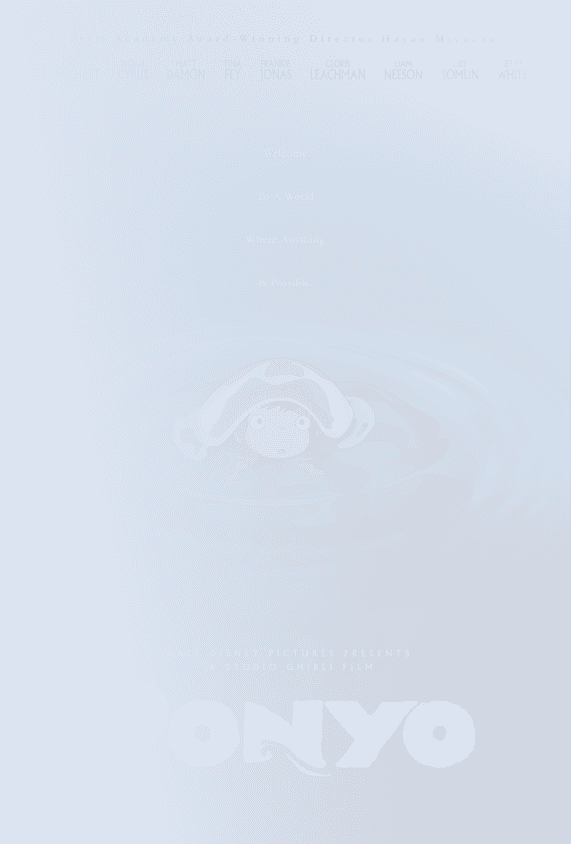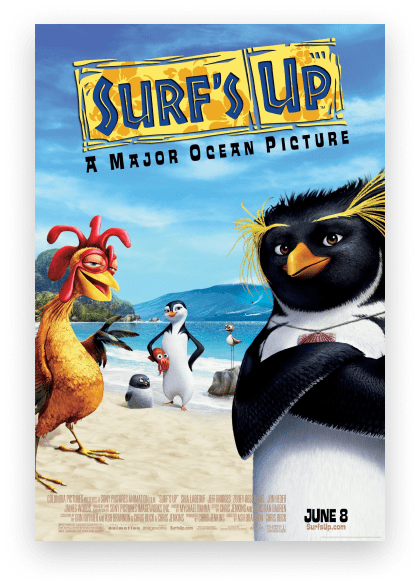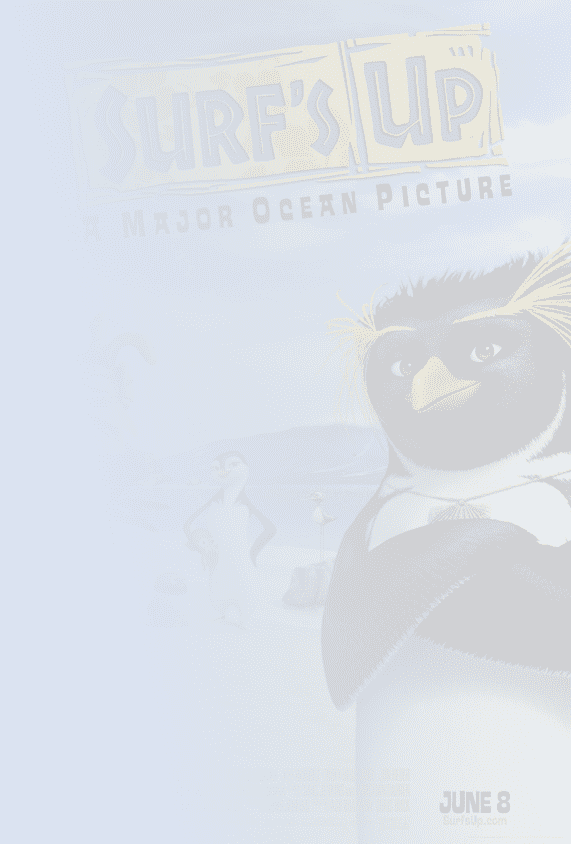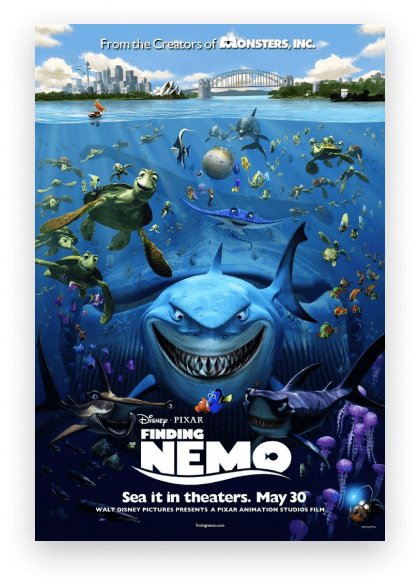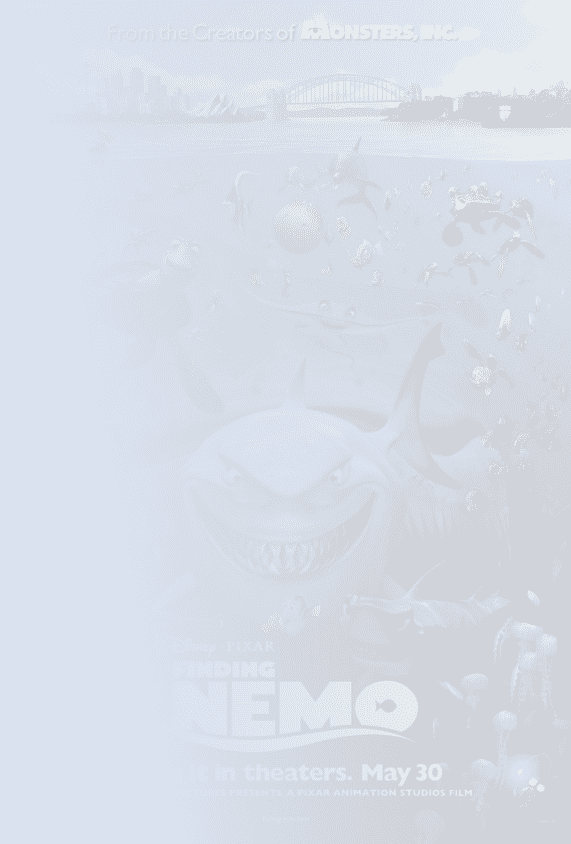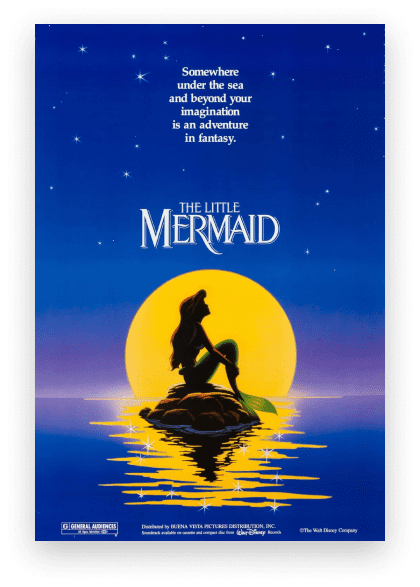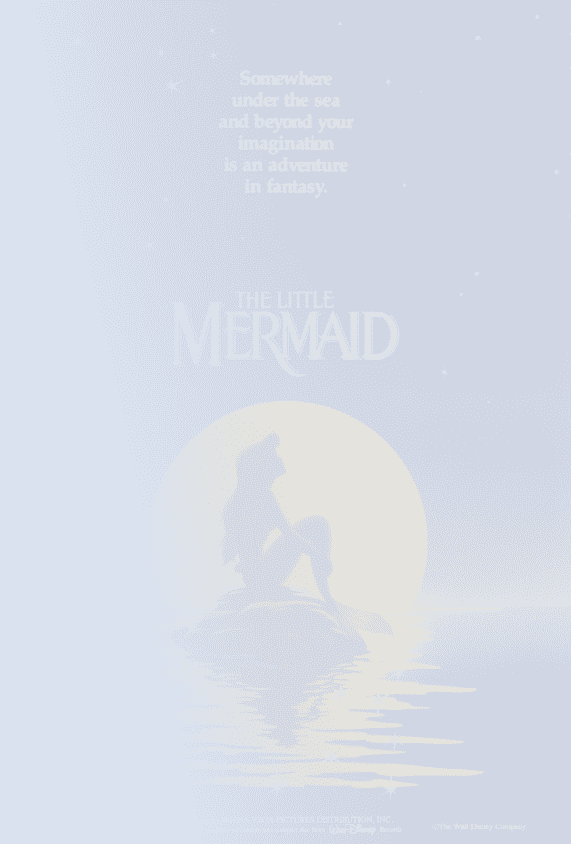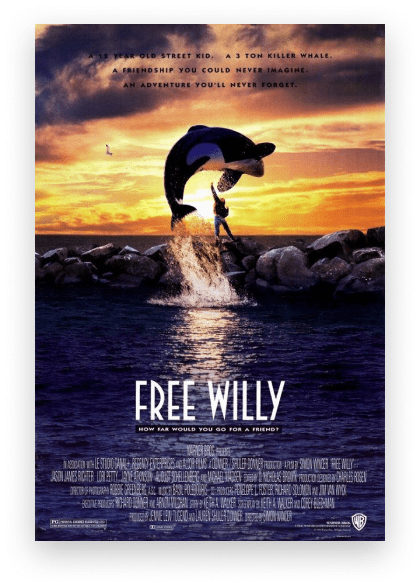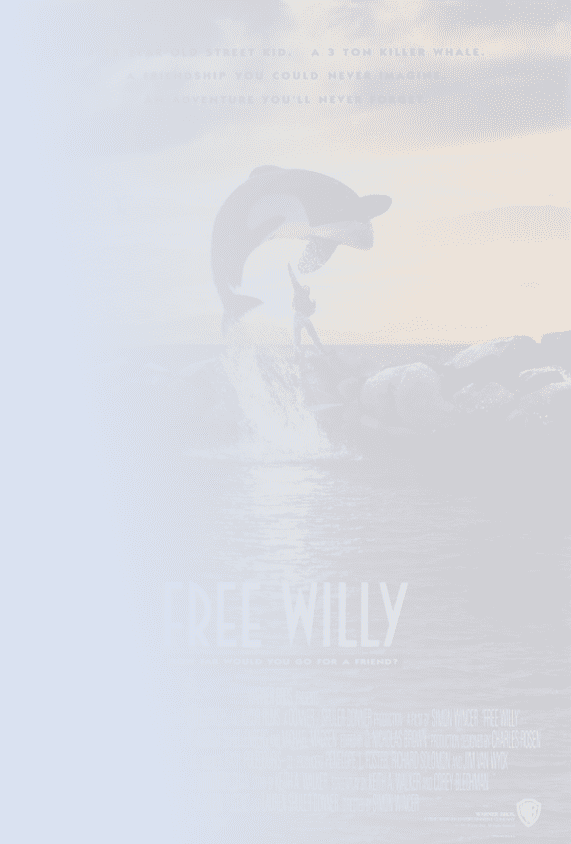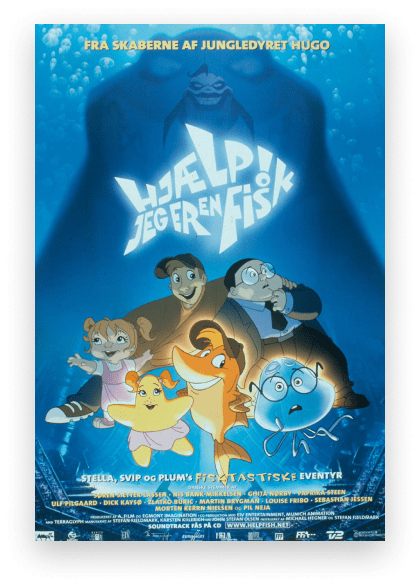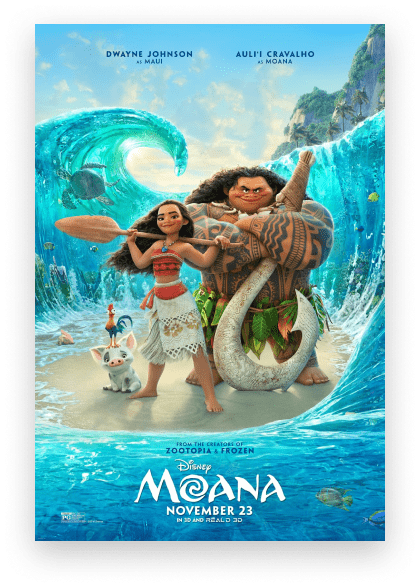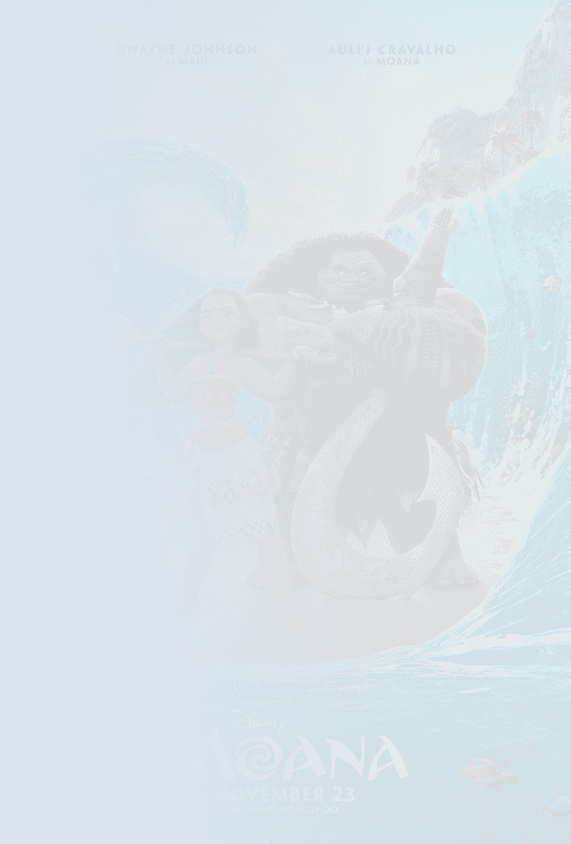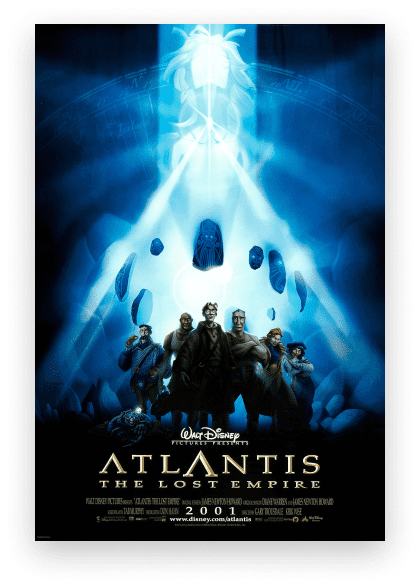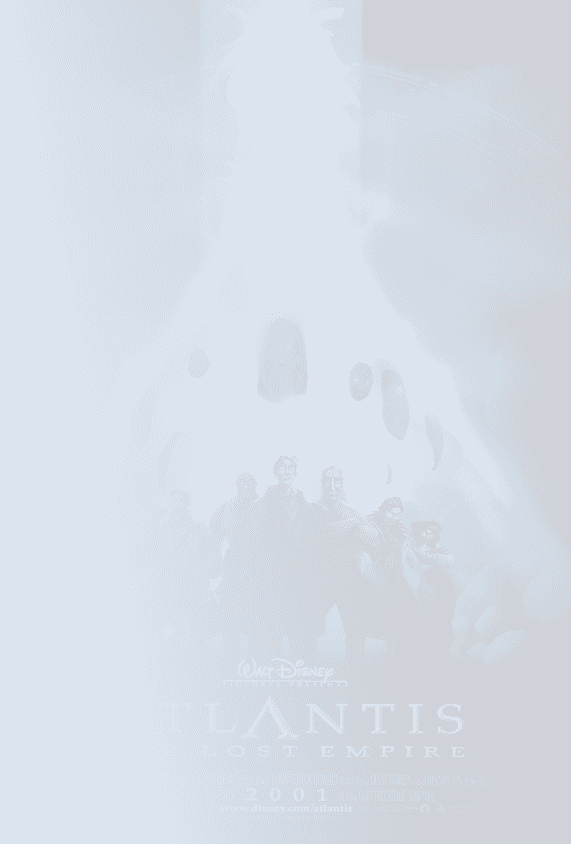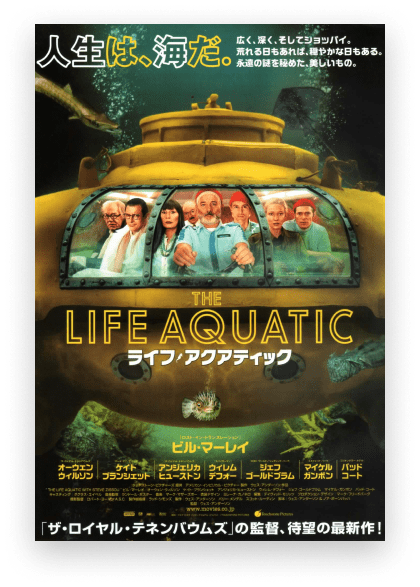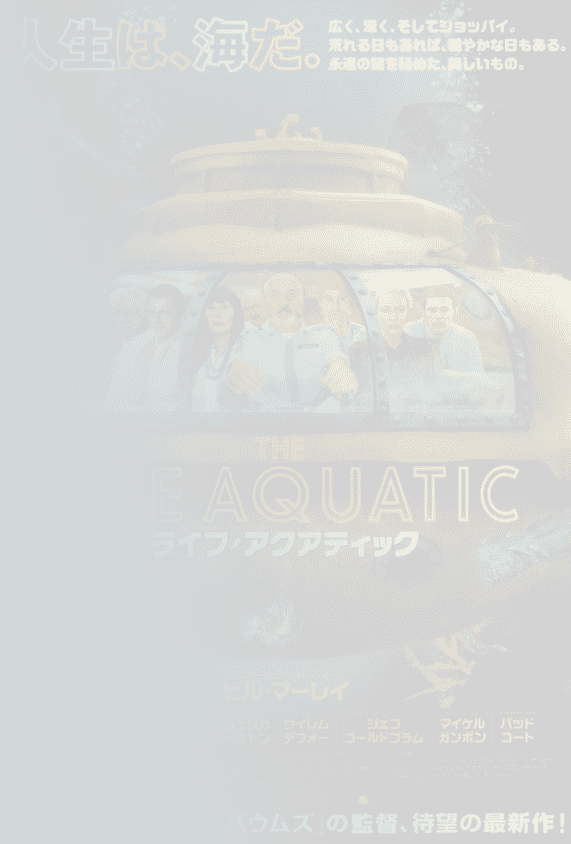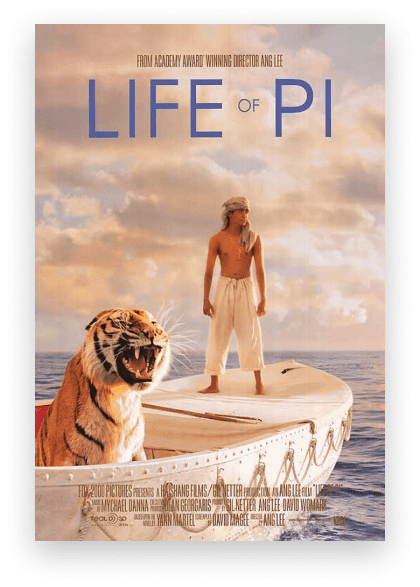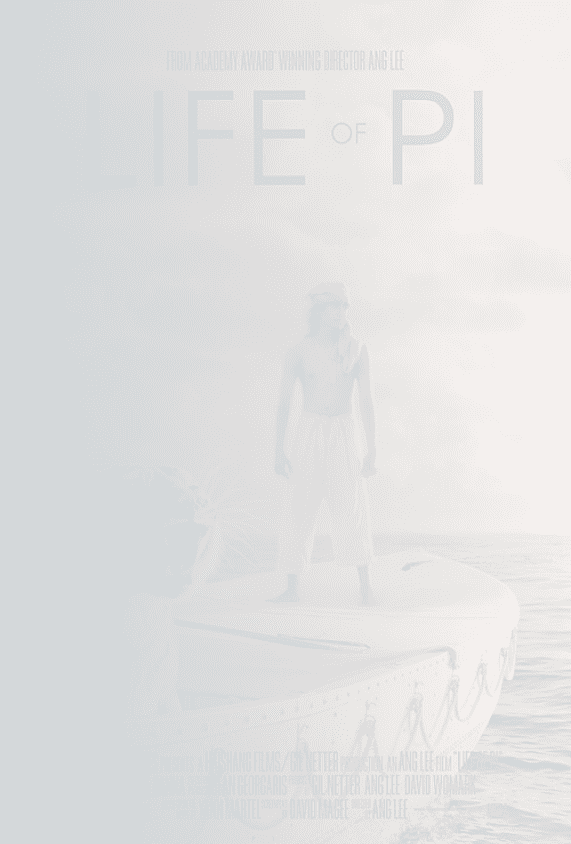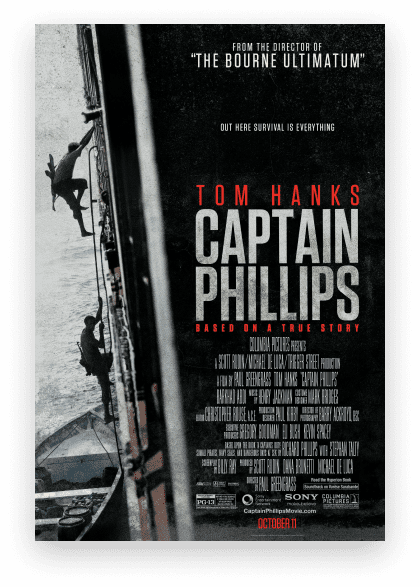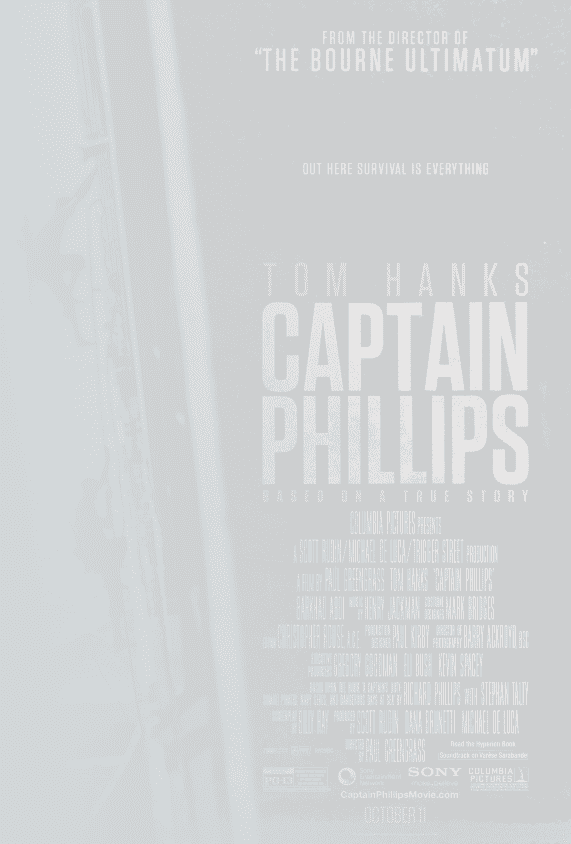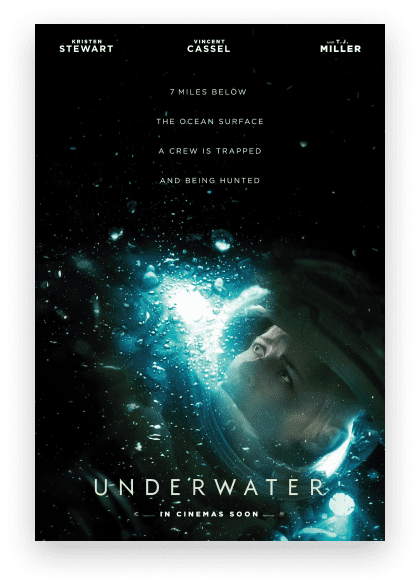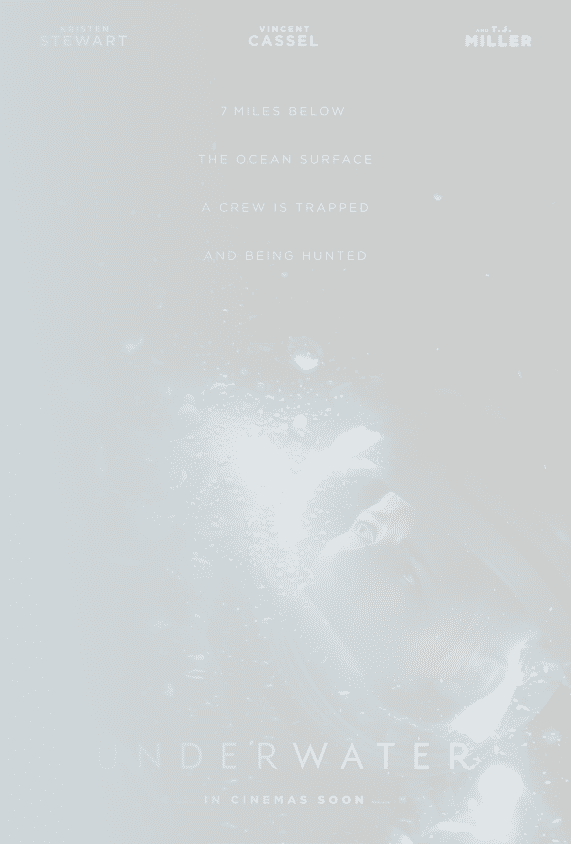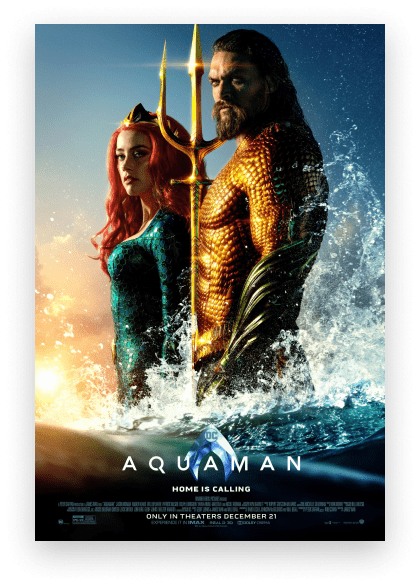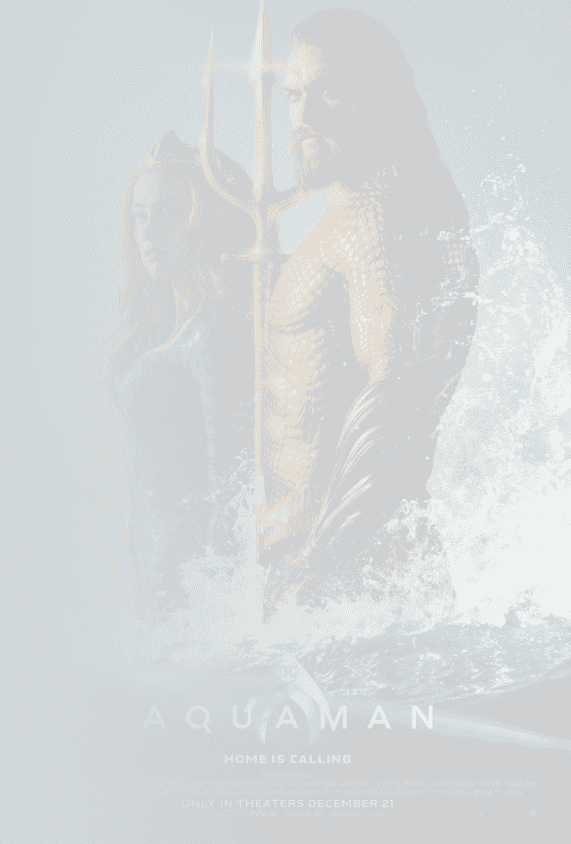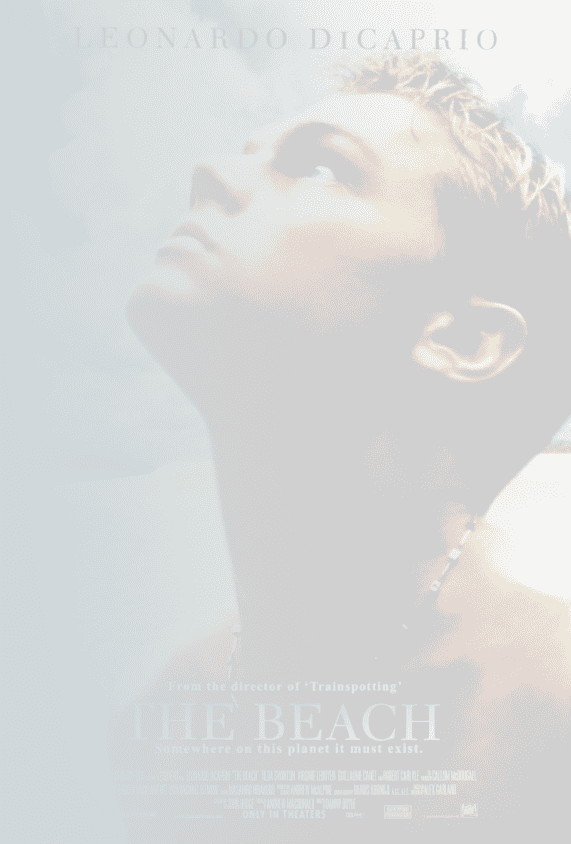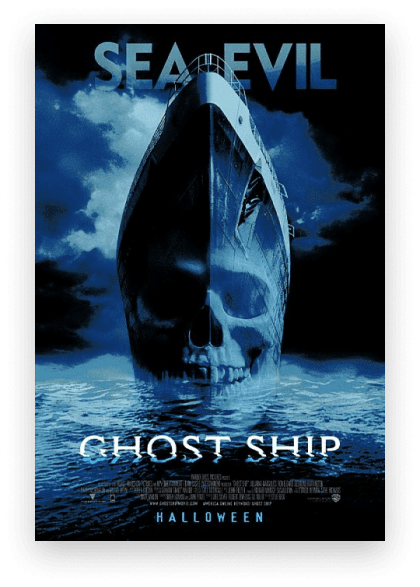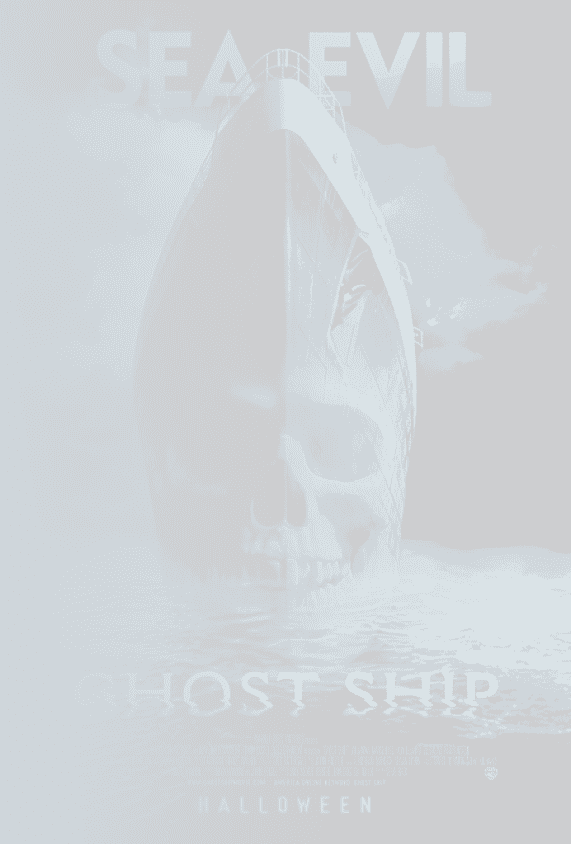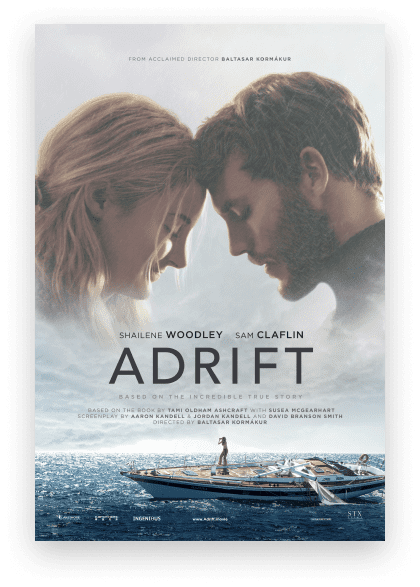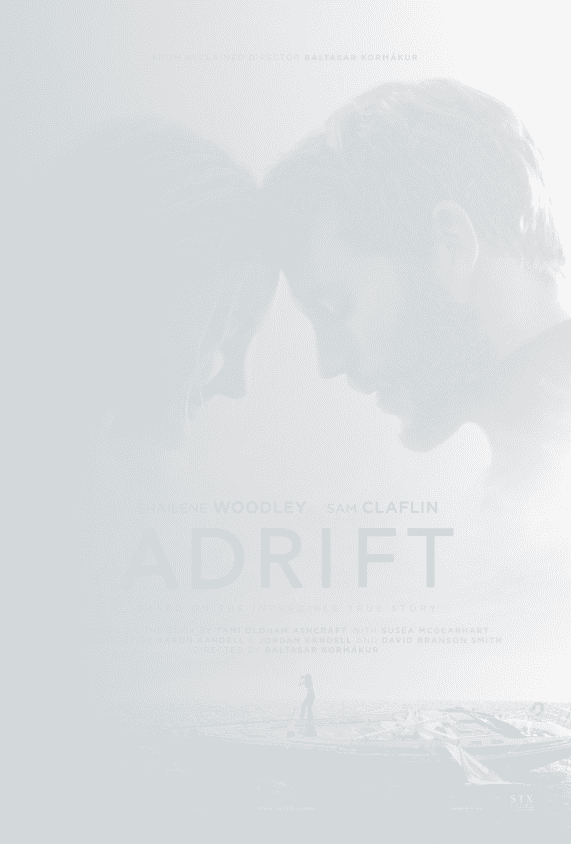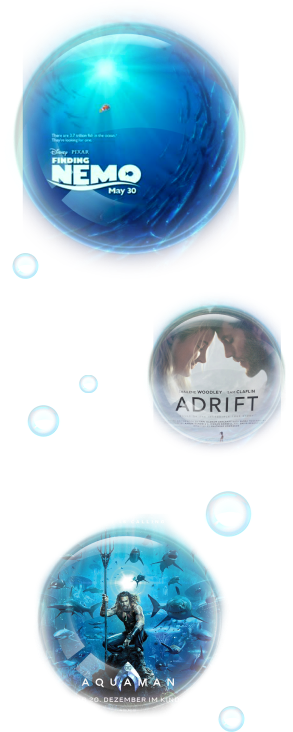

Unveiling
The DeeP
How the Ocean Has Made
Waves Throughout the Media
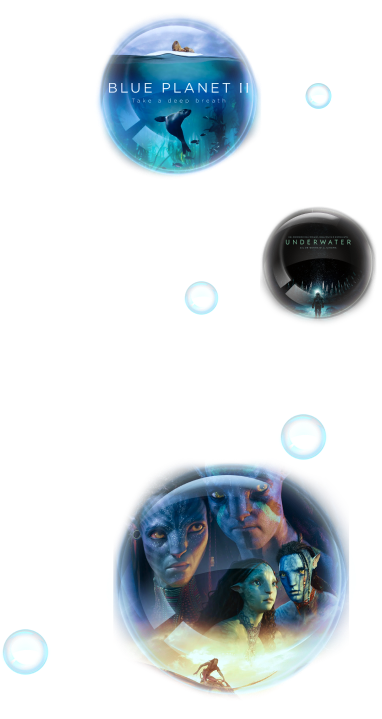
Due to its vastness, endless beauty, and alluring mysteries, the ocean has a longstanding history of being a prominent focal point for science, film, television, art, and literature. From vibrant marine ecosystems to hidden treasures, the alluring wonders of the ocean have served as a canvas for both real and imagined tales.
No matter your age, there’s an abundance of breathtaking and thalassophobia-inducing media out there waiting to be explored. Join us as we dive into a historical voyage unveiling how the media affects our perception of the ocean, and explore various TV shows and films, suited to all ages, that delve into the deepest corners of the sea.
How the Media Collides
With the Ocean
A Historical Exploration
In the past hundred years, many films and tv shows have taken us on voyages through the ocean, making a significant impact on the media and audiences. While oceanic-themed content has heightened our fascination and curiosity of the deep blue, it’s also induced thalassophobia, leaving audiences fearful of what lies beneath the ocean’s surface.

So, why is the ocean such a prominent theme throughout the media?
Because so little of the ocean has been explored, the imaginations of writers and directors often plunge deep into the abyss, conjuring mythical creatures, and reimagining historical tales and sea shanty’s told by explorers and pirates. Aside from fictional narratives, scientific research and sea expeditions have also facilitated a significant focus on the ocean.
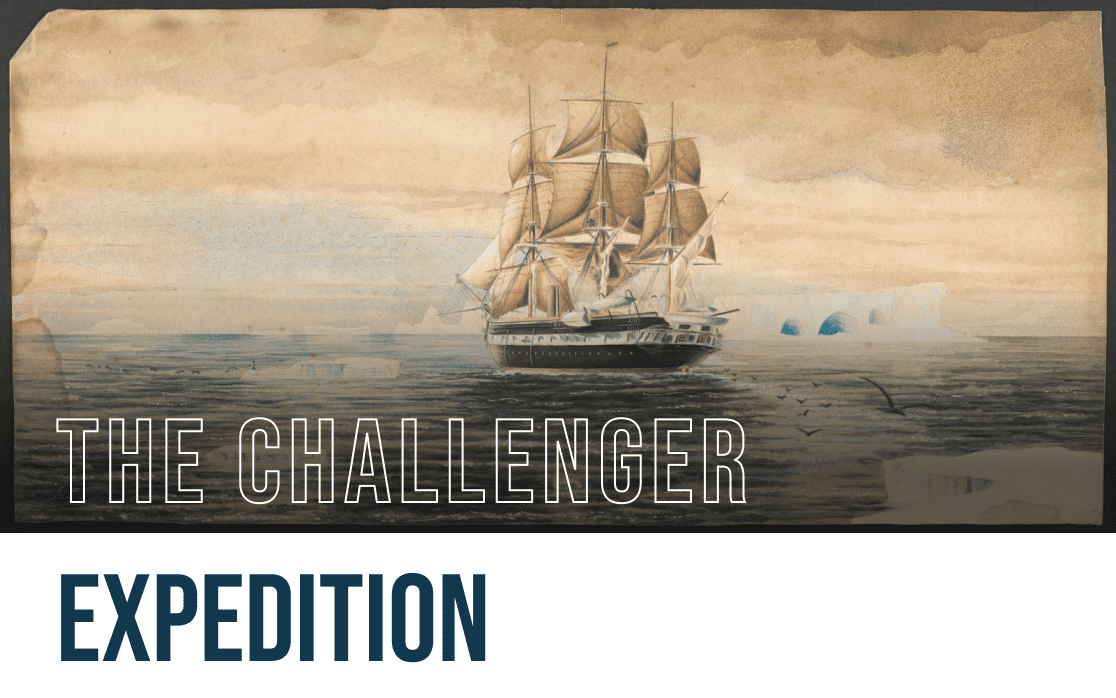
The Challenger Expedition (1872 – 1876) is humanity’s earliest oceanographic program, which unveiled several new discoveries about the sea.
This expedition was instigated by William Benjamin Carpenter, an English physician, physiologist, and zoologist, who embarked on the four-year exploration under the supervision of Sir Charles Wyville Thomson, a natural historian with a specialty in marine zoology.
During their voyage, the two explorers made remarkable discoveries which revolutionized our understanding and awareness of the liquid wilderness. Some examples of their findings included iconic sea creatures, such as the deep sea anemone, deep sea octopus, and the Seamount Squid.
iconic sea creatures
These discoveries ultimately elevated society’s understanding of the ocean’s biodiversity, sparking a global interest in the deep abyss.


How Ocean Exploration Has Impacted Film & Cinema

From enchanting cinematography to informative documentations, oceanic exploration has supplemented cinema and film in a plethora of incredible ways. While the Ocean often serves as a source of narrative inspiration for many directors, it also provides an engaging outlet for learning.
Below, is a timeline highlighting pivotal moments in cinema which have been heavily inspired by our understanding of the ocean
1916
The first fictional underwater film, ‘20,000 Leagues Under the Sea’, is released. This film is based on the novel by Jules Verne, and tells the story of three sailors who journey through the ocean in search of a whale, but soon fall prisoner to a submarine, entitled ‘The Nautilus’.
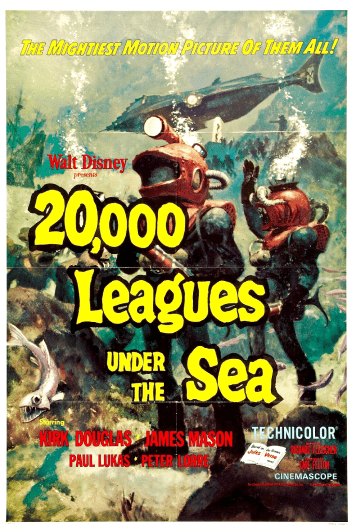
1956
Filmmakers Louis Malle and Jacques Cousteau release the first documentary film about the ocean, ‘The Silent World’. The movie was filmed aboard a ship titled the ‘Calypso’, which voyaged for over two years through the Mediterranean Sea, the Persian Gulf, the Red Sea, and finally, the Indian Ocean.
Amid its release, the film sparked controversy because of the substantial damage it caused to the sea life, including the accidental death of a young whale and unnecessary massacre of sharks.
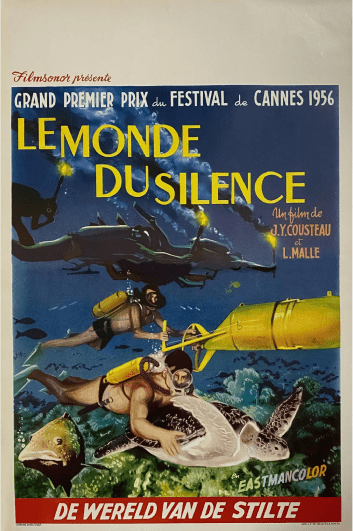
1968
Director Alan Landsburg and filmmaker Jacques Cousteau release the first oceanic documentary television series, ‘The Undersea World of Jacques Cousteau’. This 36-episode-long program ran between 1968 and 1976, with each episode showcasing geological phenomena and marine wildlife.
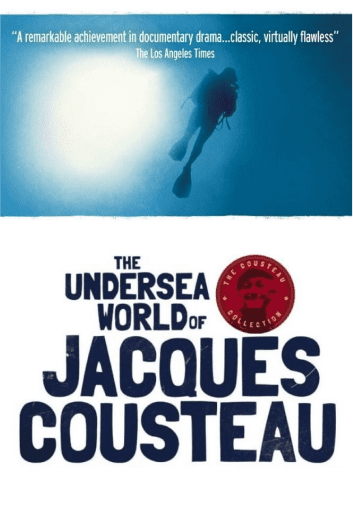
1975
Critically Acclaimed and multi-award-winning director, Steven Spielberg, releases ‘Jaws’. This film is arguably the biggest ocean-themed movie to date, which has significantly altered society’s perception of sharks and ocean safety.
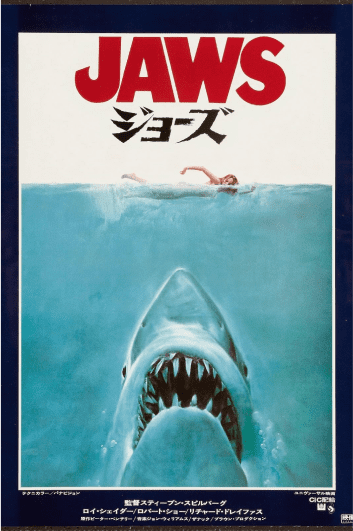
1985
The Discovery Channel is launched, providing audiences with daily wildlife documentaries. Due to its accessibility and widespread popularity, the Discovery Channel has significantly boosted society’s fascination with ocean-themed documentaries and TV shows.
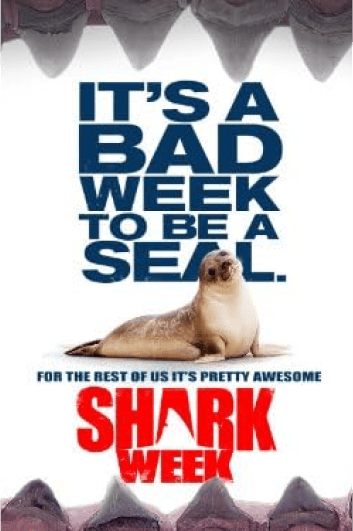
1993
Simon Wincer releases ‘Free Willy’, one of the first family-friendly sea-life movies, that tells the heartfelt story of a misunderstood orphan boy and a captive orca whale. This film drew attention to the cruelty of captive sea-life, and seemingly inspired younger generations to embrace animal activism.
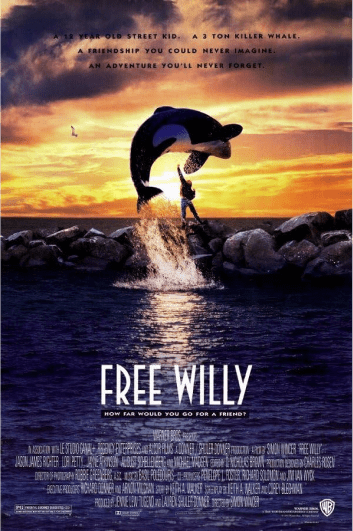
1997
World renowned director, James Cameron, releases one of the highest-grossing films of all time, ‘The Titanic’. This film integrates the tragic true story of the Titanic ship which collided with an iceberg and sank in 1912.
During the movie we see an unlikely romance blossom between two young voyagers, Jack (Leonardo DiCaprio) and Rose (Kate Winslet), which poses concern among Rose’s aristocratic family.
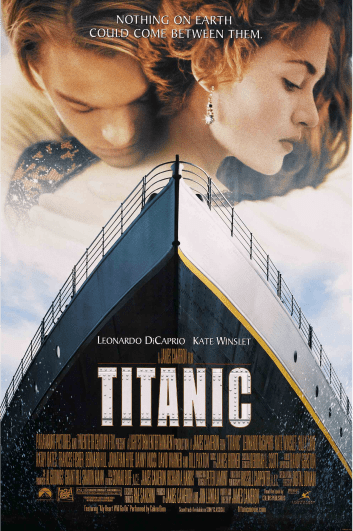
2001
Sir David Attenborough releases ‘The Blue Planet’, a remarkable docuseries which becomes a landmark in marine exploration.
During this 8-episode series, Sir Attenborough narrates an immersive journey through the deepest corners of the ocean, offering up-close and never-before-seen footage of nature’s most complex and mesmerizing aquatic creatures.
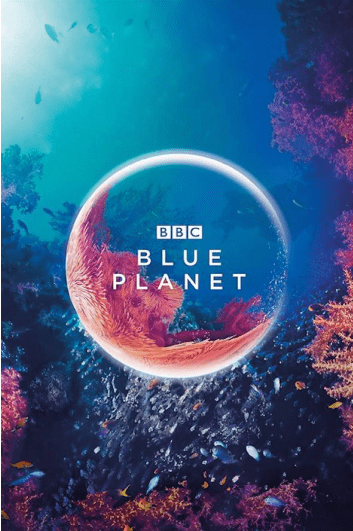
2003
Disney-Pixar released one of their biggest selling animated children’s movies, ‘Finding Nemo’. This film tells the story of a lost young clown fish, Nemo, and his worried father, Marlin.
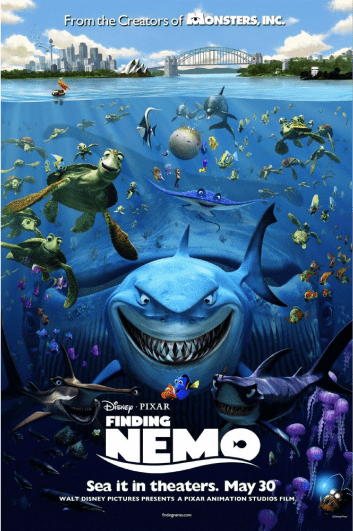
2006
Conservationist-led documentary, ‘Sharkwater’, is released, showcasing sharks in an alternative light. This film illustrates the unfortunate dangers that sharks endure everyday due to humanity and demonstrates how misunderstood these marvelous creatures are.
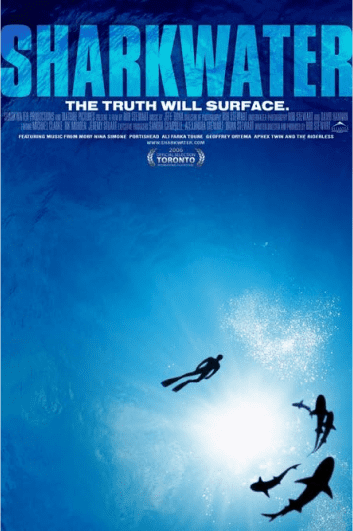
2017
Sir David Attenborough releases ‘The Blue Planet II’, a sequel to the original series, showcasing recent discoveries and raising awareness about humanity’s detrimental effects on the ocean, such as increased plastic waste and toxic pollutants.
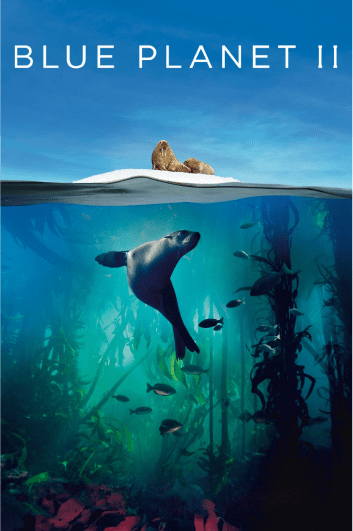


How Movies Impact Ocean Research & Engagement
Movies have a substantial impact on society’s perception of the ocean. While Cinema can alter our view of the ocean for the better, stimulating our fascination for aquatic creatures, it can also bring forth fearfulness of the great unknown and encourage hatred against certain species, such as sharks.
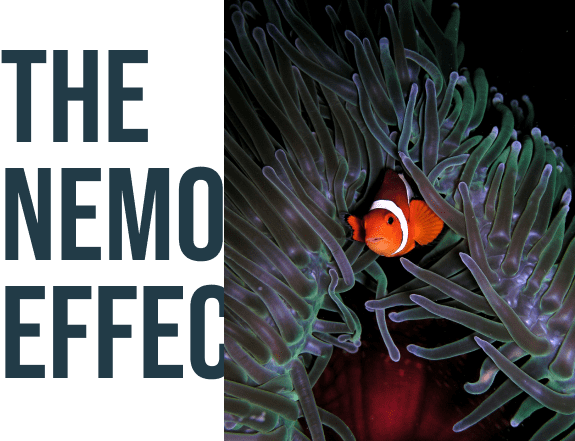
After the release of ‘Finding Nemo’ (2003) there was a surge in purchases of clownfish, which resulted in both animal and environmental harm. Because of this, the term ‘The Nemo Effect’ began trending.
This theory argues that the media can alter our perceptions of sea-life for the worst, resulting in detrimental damage to both underwater ecosystems and the environment. This is a primary example of how ocean-themed film and television can facilitate a negative response throughout society.
However, mass-hysteria about the ocean isn’t always so bleak. Many progressive documentary filmmakers have created phenomenally insightful films and series, such as ‘The Blue Planet’ (2001).
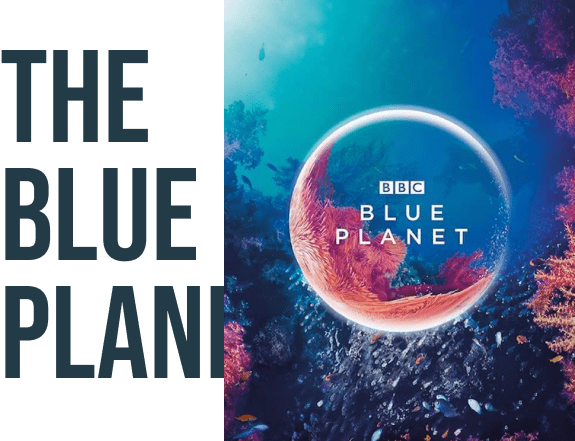
This has showcased the magical marvels of the ocean, while simultaneously shedding an important light on how our daily activities, such as plastic consumption, negatively impact the ocean’s ecosystems.
The ultimate effect of this enlightenment has provoked audiences to embrace sustainable practices, and support charities and conservation projects working tirelessly to save endangered oceanic species.

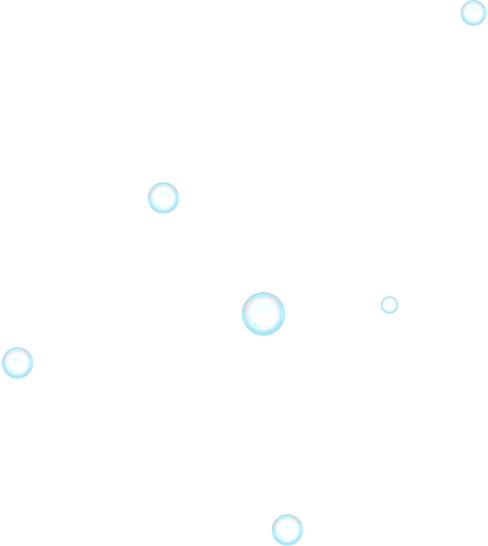
Famous Oceanographers &
Marine Biologists
Oceanographers and marine biologists play a fundamental role in enabling society to understand the deep blue and the otherworldly creatures that inhibit it. Their research benefits both society and filmmakers.

Through complex research and knowledge, these scientists have delivered valuable insights into marine life, including aquatic biodiversity and the intricacies of marine ecosystems.
Oceanographers and marine biologists have additionally enhanced society’s awareness of climate change, which both encourages sustainable practices and leads to important conservation projects.
The expertise shared by oceanographers and marine biologists has not only educated us but also helped directors and filmmakers create informed films and television shows, which portray accurate and visually mesmerizing portrayals of the ocean.
This has ultimately bridged the gap between scientific research and storytelling, enabling society to foster a deeper connection and understanding of the ocean.
While there are many notable oceanographers and marine biologists, there are a few who stand out. Below are some of the greatest oceanic scientists to have ever lived, alongside their greatest achievements:
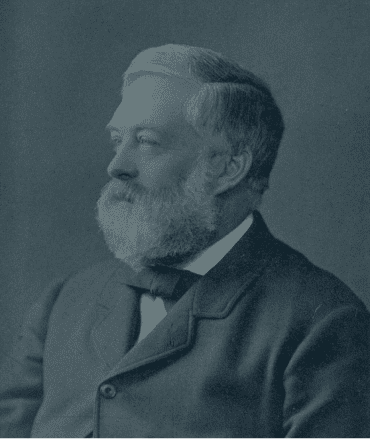
Sir Charles Wyville Thomson (1830-1882)
Sir Charles Wyville Thomson was a Scottish-born zoologist who specialized in marine life, particularly the study of oceanic invertebrates.
During his life, Charles embarked on several marine expeditions across the globe. His most notable work includes the famous HMS Challenger expedition, where Charles led a six-man scientific team to unveil the deepest, darkest mysteries of the ocean.
Achievements:
Discovered over 4,000 new species of marine life, including the snipefish and grenadier fish.
Created many scientific publications that contributed to the scientific understanding of the ocean, including his most renowned work ‘The Depths of the Sea’(1873).
During a deep sea expedition aboard the HMS Lightning and the HMS Porcupine (1868-1869), Charles discovered that animal life resides 1200 meters below the ocean’s surface.
.

Dr. Sylvia Earle (1935-present)
Dr. Sylvia Earle is a multi-award winning oceanographer, research scientist, and scuba diver. She has devoted her life’s work to protecting the ocean against threats, such as habitat destruction, pollution, and climate change. Logging more than 7,000 hours of underwater exploration, Sylvia is a salient figure in oceanic research and conservation.
Achievements:
Founded the conservation organization, ‘Mission Blue’, in 2009 which established protected areas, known as ‘hope spots’.
Holds the world record for the deepest walk on the sea floor.
Is the first female leader of the National Oceanographic and Atmospheric Administration (NOAA).
.

Robert Ballard (1942-present)
Robert Ballard is among the most famous oceanographers who has discovered multiple shipwrecks. His work often ties geology with oceanography, enabling us to understand the Earth’s climates, and make informed environmental predictions.
By the age of 17, Robert had embarked on his first nautical expedition on a National Science Foundation scholarship, where he almost sank due to rogue waves.
Achievements:
Discovered famous historical shipwrecks, including the RMS Titanic and the Bismarck.
Aided the discovery of hydrothermal vents on the ocean floor.
Became a resident National Geographic explorer and created an original National Geographic television series ‘Alien Deep’.
.
Ocean and Sea on TV
From heart-racing aquatic adventures to binge-worthy reality TV, there’s an entire ocean of marine-themed television series waiting to be watched! Dive into this section to discover your next favorite show.

Ocean & Sea TV Shows for
Kids & Teens
Oceanic TV is extremely popular among youngsters. This genre introduces children and teens to the vibrant and engaging world that lies beneath the waves. From talking fish to adventurous voyages, young audiences are truly spoiled for choice when it comes to ocean-themed TV. Here are our top 10 ocean TV show picks for kids and teens:

Ocean & Sea TV Shows
for Adults
From mystifying narratives to alluring visuals, there are many depths to explore within the realm of ocean-themed television. Whether you are seeking a gripping late-night thriller or want to enjoy some guilt-free reality TV, you won’t have any trouble discovering a show that aligns with your unique preferences. Explore our top five suggestions to find your next watch:
Ocean & Sea on the Big Screen
Prepare to sail into the magic of ocean-themed movies, where the expansive, deep blue becomes a magnificent canvas for beguiling cinematography and captivating storytelling. From heartfelt family favorites to heart wrenching thrillers, ocean-themed films will immerse you in mystery and beauty while provoking a sea of emotions!

Ocean & Sea for Kids
From singing and dancing penguins to enchanting deep sea empires, there’s a full spectrum of cheerful kids’ films waiting to be watched (that grownups will love too!).
Here are our top 10 picks

Ocean & Sea Films for
Grown-Ups
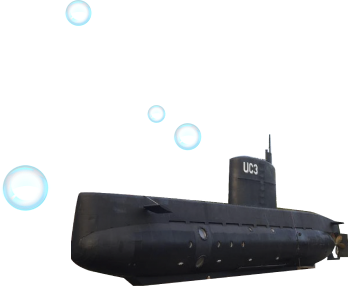
Whether you’re in the mood for tear-jerking romance or a heart-pumping adventure, we have rounded up some flipping-good movies, from a wide variety of genres. Explore the following top 10 films:

Ocean & Sea
Documentaries

While fictional ocean films offer a range of exciting narratives and visuals, the true spectacles of the deep sea are often found in real-life. Here are five phenomenal ocean documentaries that are bound to utterly entrance you:
Blue Planet
(2004)
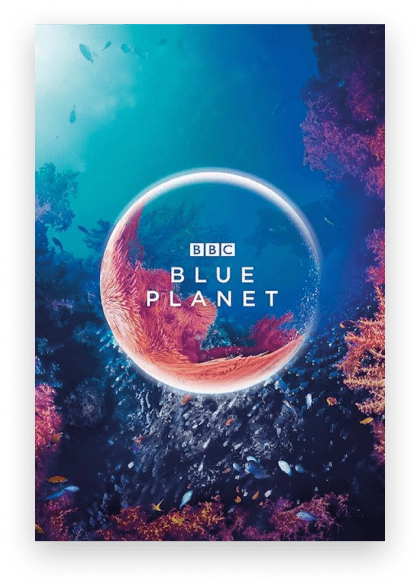
Blue Planet II
(2018)
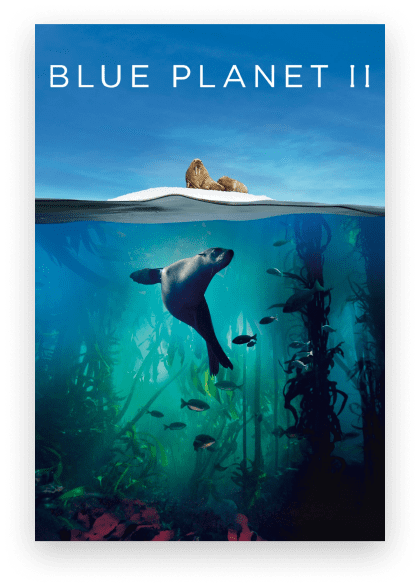
Synopsis:
In this immersive docuseries, David Attenborough guides you through a magical oceanic exploration, showcasing never-before-seen footage of the vibrant marine wildlife.
You also get to enjoy exclusive behind-the-scenes at the end of each episode, offering insight into the remarkable work of the marine biologists and oceanographers that made the show happen.
Where to Watch: Discovery+
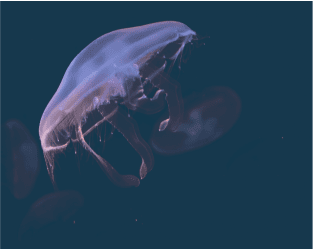
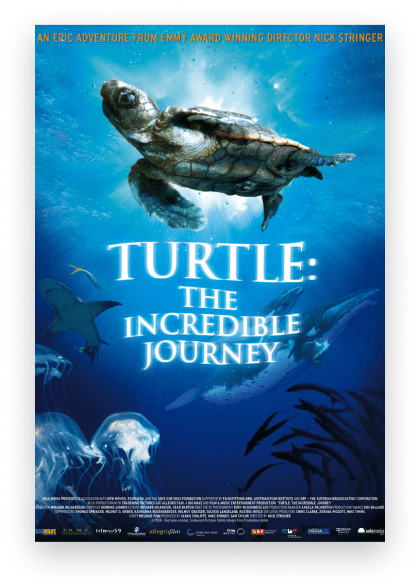
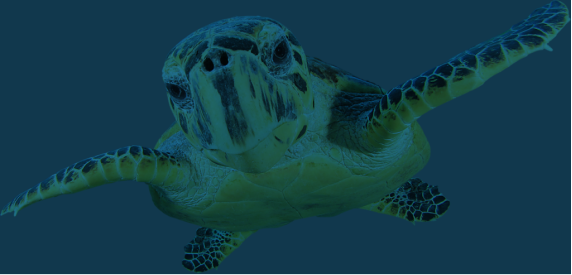
Turtle: The Incredible Journey
(2009)
Synopsis:
Following the extraordinary 9,000 mile journey of a hatchling loggerhead turtle, this documentary takes you on an unforgettable voyage through the natural oceanic world.
Where to Watch: Apple TV+; Amazon Instant Video
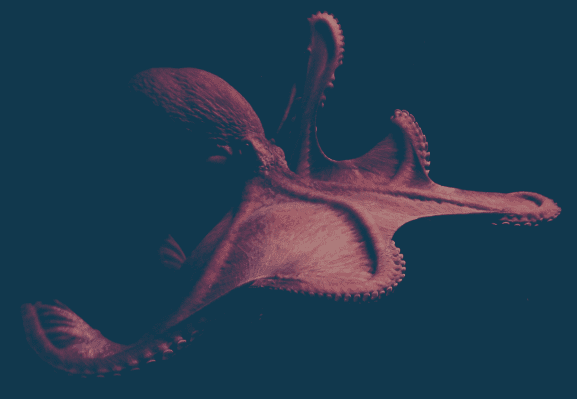
My Octopus Teacher
(2020)
Synopsis:
In this stunningly heartwarming documentary, an independent filmmaker, Craig Foster, develops an unlikely friendship with a characterful octopus. Over the course of a year, Foster films his encounters with the friendly octopus, offering new insight into these remarkable creatures.
Where to Watch: Netflix
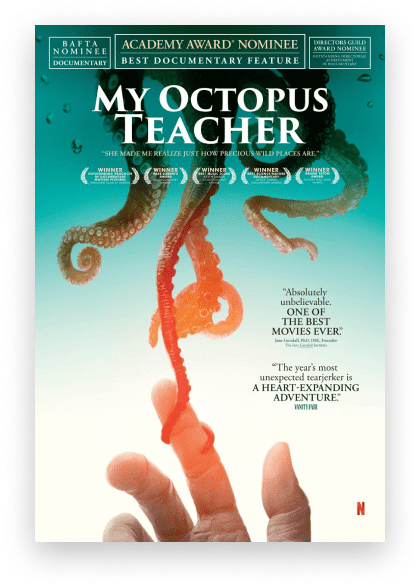
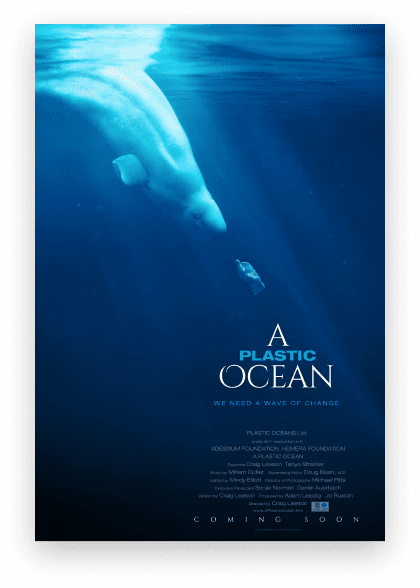

A Plastic Ocean
(2016)
Synopsis:
In this conscientious and unfiltered documentary, oceanic explorers, Tanya Streeter and Craig Leeson, join a team of international scientists to unveil the detrimental consequences of plastic pollution.
Where to Watch: Peacock; Amazon Instant Video

Chasing Coral
(2020)
Synopsis:
In an attempt to raise awareness for the ocean’s dying coral population, a team of divers, scientists, and photographers embark on an oceanic exploration, to determine why the reefs are dying so fast.
Where to Watch: Netflix
